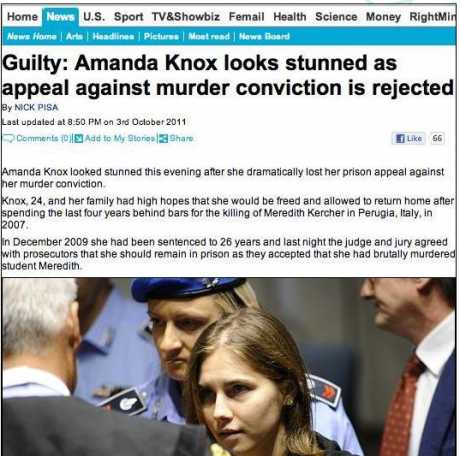The case for press regulation

Press regulation, far from being a dangerous imposition, is crucial for a properly functioning democracy, writes Steven Lydon.
Bertie Ahern recently described the Irish media as “incompetent” for not preventing Ireland’s economic crisis.
Ahern might be confused regarding the role of the press, but he is right to recognise its importance.
For its readers, the press describes the society they live in. It is more than simply a medium, for from it flows the direction of democratic society.
A certain purity is therefore desirable in this institution, yet this purity is under threat from weak regulation in the sector.
Prime Minister David Cameron recently reassured the newspaper industry in relation to the Leveson Inquiry that “there is no intention on behalf of this government to neuter the press…I am passionate about not just a free press but a press that feels free to inquire.”
Yet this seemingly laudable statement needs some unpicking: does Cameron mean freedom of the market, or freedom of the citizen?
Paul Dacre, editor of the Daily Mail, argued this month that “Britain's commercially-viable free press... is the only real free media in this country. Over-regulate that press, and you put democracy itself in peril.”
Dacre happens also to be the chairman of the Editors' Code of Practice Committee, which periodically reviews the Press Complaints Commission’s guidelines for newspapers and magazines.
An investigation by the information commissioner in December 2006 revealed that more than 50 Daily Mail journalists had paid private detectives to obtain 982 pieces of information about celebrities and other individuals.
Dacre's attack on regulation is noteworthy as the first major defence of private media since News Corp's phone-hacking scandal and the subsequent demise of the News of The World.
His argument is not unfamiliar. In 2009 James Murdoch used his McTaggart lecture at the Edinburgh International Television Festival to compare media regulation to “creationism”. Intervention disrupts the natural ecology of the market.
“Thanks to Darwin,” Murdoch said, “we understand that the evolution of a successful species is an unmanaged process.”
In today's political discourse, the market is the embodiment of freedom. Any intervention is criticised as paternalistic.
Yet it is a strange kind of freedom - one that takes place in total ignorance of objectively-occurring events.
What is currently labelled as the paternalism regarding press regulation actually guarantees the ability of the population to act and make decisions on the basis of fact.
The BBC, for example, is lauded around the world as an outstanding news source and producer of documentaries.
The intense competition between staff in newspapers has been diagnosed as one reason for ethical lapses.
On 3 October, the Daily Mail wrongly announced a guilty verdict in Amanda Knox’s appeal in their haste to break the story.
The issue here is not an editorial error, but the extent of the story's pre-fabrication: “As Knox realised the enormity of what judge Hellman was saying she sank into her chair sobbing uncontrollably while her family and friends hugged each other in tears.”
Such an attitude towards the truth is certainly laissez-faire.

Andrew Langhoff, editor of the Murdoch-owned Wall Street Journal, resigned last week.
This was due to a scandal in which money was channelled through European companies to secretly buy thousands of copies of its own paper at a knock-down rate, misleading readers and advertisers about the paper’s true circulation figures.
Can the private press really regulate itself, given the pressure of market forces and vested interests that bear on it?
James Murdoch has lambasted the imposition of impartiality in broadcast news, saying, “the effect of the system is not to curb bias, [which is] present in all news media, but simply to disguise it.”
Murdoch's summoning of notions of objectivity as a mask for self-interest is breathtakingly cynical. Objectivity is not easily achieved, but it is nonetheless an ideal to which our press must aspire regardless of political orientation.
Though Murdoch's concern for media purity is doubtless sincere, he makes no effort to disguise his financial investment in the matter.
Murdoch highlights how regulation “limits the amount of advertising per hour, the availability of product placement, the distinction between advertising and editorial.”
According to a 2001 survey, US broadcast stations allocated between16 and 21 minutes per hour to commercials in that year, up from 13 minutes per hour in 1992. Such levels of advertising are irritating at best, exploitative at worst. In the UK, broadcasters are limited to a maximum of seven minutes per hour of advertising.
It seems Ofcom is doing a good job in this regard. The PCC would do well to be remodelled along these lines.
Murdoch views regulation as “an impingement on free speech” and nothing less than “authoritarianism”.
Yet despite his attack on the BBC's hegemony, News Corp was at the time preparing for its takeover of BSkyB; a takeover that would have led to concentration of media ownership that illegal in the US or Australia.
Mark Thompson, Director-General of the BBC, gave a weak response to Murdoch in his 2010 McTaggart lecture the following year.
He focused merely on Sky's lack of investment in British programming, eliding the political issues at the heart of the issue.
The claim that the market should determine what counts as important news is problematic. The truth is often hard to market, yet it remains important despite that fact.
Despite all the service to democracy that a deregulated media supposedly provides, British prime ministers have long been in thrall to Murdoch's empire.
Murdoch supported Blair in the general election in return for Blair's backing of a communications bill loosening restrictions on foreign media ownership.
News International bosses reportedly told Ed Miliband that there would be "repercussions" if he continued to call for Rebekah Brooks's resignation.
Prime Minister David Cameron is a close friend to Rebekah Brooks, former editor of the Sun and former chief executive of News International.
Andy Coulson, former editor of the News of the World, was forced to resign as Cameron's communications director in the run up to the phone-hacking scandal.
Such blatant infiltration of a democratic parliament by a private news organisation is nothing less than scandalous.
Murdoch's 2009 lecture appears laughable in light of the corruption that has since come to light. Yet his rhetoric is still at work today.
Despite the potential dangers of press regulation, it remains the most potent force for justice in modern democratic society, if properly managed.
This goal deserves to be stated clearly as an end in itself. It is one issue we cannot afford to argue in terms of the market.
Newspapers have a right to be politically oriented. Yet this orientation should be explicit and honest.
The larger the corporation, the greater its obligation to be honest and informative.
Regulation is not an imposition on the freedom of the individual. Rather, it guarantees that freedom through the perpetuation of a democracy based on rational discourse. {jathumbnailoff}
Image top: iabuk.
